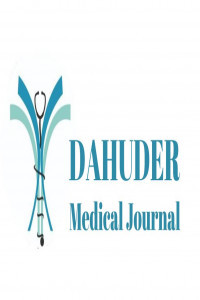
DAHUDER Medical Journal
Yazarlar: ["Kübra ÇERÇİ", "İmge Bortay TEKİN", "Seyit UYAR"]
Konular:-
DOI:10.56016/dahudermj.1195167
Anahtar Kelimeler:Familial hyperlipidemia,Heterozygous familial hyperlipidemia,Homozygous familial hyperlipidemia,Low-density lipoprotein receptor mutation
Özet: Familial hyperlipidemia (FH) is an autosomal dominant inherited disease characterized by genetic disorders with severe high blood cholesterol levels. There are two forms of the disease which are homozygous and heterozygous FH. FH cases are generally caused by hereditorial mutations in the LDL receptor (LDL-R) gene and less commonly in genes encoding apolipoprotein B (Apo B) and pro-protein convertase subtilisin/kexin 9 (PCSK9) proteins. The risk of early-onset coronary artery disease (CAD) in FH patients is 20 times higher than the normal population. Early diagnosis and treatment of FH will greatly reduce the morbidity and mortality associated with CAD.